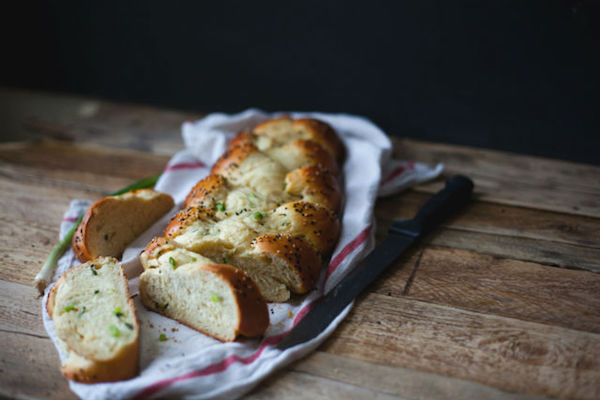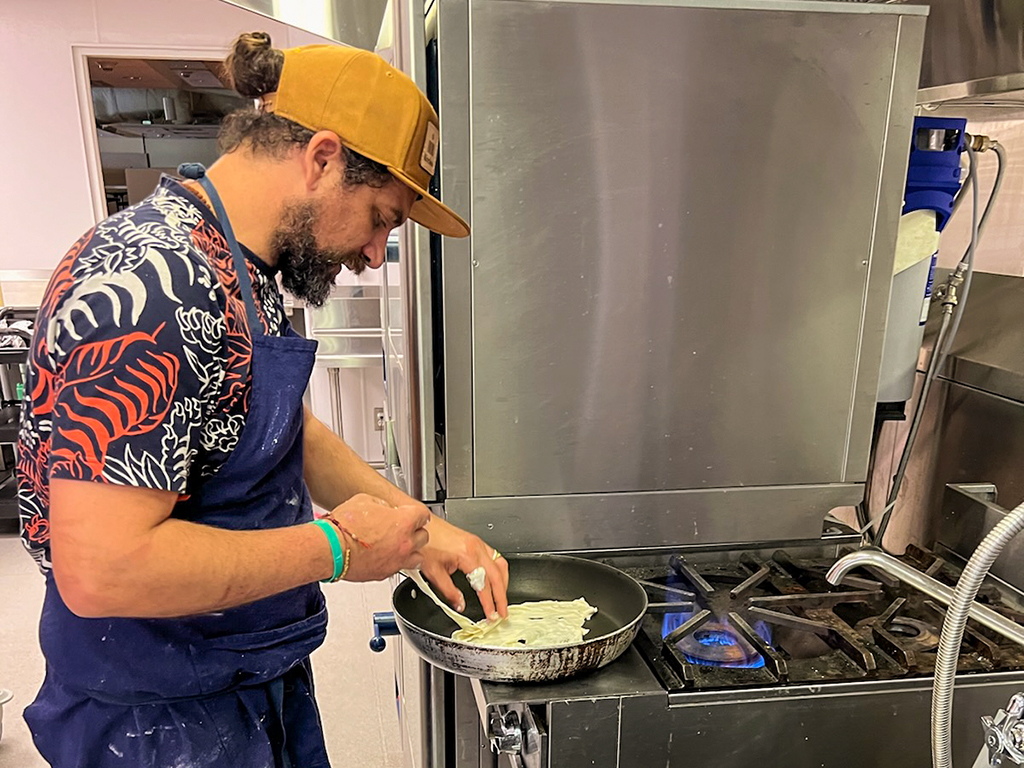 In my kitchen currently, there is a jug of Kedem Grape Juice from the local kosher market. It sits next to a container filled with pork floss, a dried meat product that serves as an excellent topping on congee, a traditional Chinese porridge.
In my kitchen currently, there is a jug of Kedem Grape Juice from the local kosher market. It sits next to a container filled with pork floss, a dried meat product that serves as an excellent topping on congee, a traditional Chinese porridge.
I am a Jewish Asian American. I was adopted along with my twin sister, at 15 months of age from Jiangxi, China. My American-born dad serves as a cantor every Saturday morning at a Torah minyan. My mom grew up in Taiwan and speaks primarily in Mandarin at home. We celebrate Shabbat, Chinese New Year, and Thanksgiving.
Kedem Grape Juice visits my kitchen often. It’s a feature of our ritual Shabbat dinners. It’s poured into my kiddush cup I’ve used ever since my bat mitzvah. We lift our glasses in the air as my dad beautifully sings the kaddish. I smile as I join in a happy chorus. His voice uplifts my mood, bringing a sense of tranquility that washes over me as I relish the relief from a hectic week. Our clinking glasses, the soundtrack of a joyful moment of togetherness.
When I was a little girl, I proudly recited the blessings during Shabbat on Fridays, and on Sundays, I happily sang the Chinese nursery rhyme Two Tigers with my peers during Mandarin class.
 Congee transports me to breakfast on plane rides to Taiwan. Sitting at the small square table in my Ā gōng, (grandfather’s) Taipei apartment, together sharing occasional congee smeared smiles because he doesn’t engage in much conversation.
Congee transports me to breakfast on plane rides to Taiwan. Sitting at the small square table in my Ā gōng, (grandfather’s) Taipei apartment, together sharing occasional congee smeared smiles because he doesn’t engage in much conversation.
In my pantry, there’s Manischewitz Matzo Ball Soup. In my freezer, a bag of frozen dumplings from a Chinese family-owned restaurant waiting to be steamed.
 Matzo Ball Soup is a natural remedy, at least that’s what my Nana convinced me when I was 7 years old. Upset and grumpy at the dinner table one Shabbat, I refused to eat. My Nana told me to take a sip of the soup. I was enticed by the delicious smell. I hate to admit that my Nana was right. The savory broth and the perfect texture of the matzo balls satiated my taste buds. Whenever I drink matzo ball soup, I think of Nana and her comforting voice persuading me to dip my spoon into the bowl.
Matzo Ball Soup is a natural remedy, at least that’s what my Nana convinced me when I was 7 years old. Upset and grumpy at the dinner table one Shabbat, I refused to eat. My Nana told me to take a sip of the soup. I was enticed by the delicious smell. I hate to admit that my Nana was right. The savory broth and the perfect texture of the matzo balls satiated my taste buds. Whenever I drink matzo ball soup, I think of Nana and her comforting voice persuading me to dip my spoon into the bowl.
I’ve always considered the bag of dumplings in my freezer a gift from my mom. She would drive all the way to San Gabriel from our home in the San Fernando Valley to pick them up. She’d always call and ask me which kind of dumplings I wanted. I’d always reply with pork and chicken. When she brought the dumplings back, I’d have the biggest smile on my face. I’m always eager to cook the dumplings as soon as possible.
After inhaling them, filling my mouth with the rich juiciness of each dumpling, I’d always ask my mom “Why don’t we ever make dumplings?” I thought it was important because it represents a staple of my Chinese culture.
I need to be able to make the dumplings by hand. To me, knowing how to make dumplings is validation that I am an “authentic” Asian. I want this knowledge to be proof that I am unique among the Jewish community I surrounded myself in. For a while, learning how to make them was crucial for me to feel like I belonged in the Chinese community. I thought if I learned to make dumplings I would truly feel proud when talking about my identity. I want to be deserving of that pride.
 I was worried that I wasn’t connected enough to my culture because I believed not knowing how to fold dumplings was a lack of skill that would hinder me from passing this tradition to my future children.
I was worried that I wasn’t connected enough to my culture because I believed not knowing how to fold dumplings was a lack of skill that would hinder me from passing this tradition to my future children.
Filling the dough with mixtures of meat and minced vegetables and shaping them to perfection created a moment in my mind that I didn’t want to miss out on. I longed to hear my mom and aunt instructing me in Mandarin sitting around the kitchen table with messy hands and tiny bowls filled with ingredients.
I continue asking. My mom always says okay, but we never get around to it.
I’ve settled on the tradition of mom surprising me with a bag of frozen dumplings. I’m determined to eventually have a private dumpling-making class, even if we continue to put it off. For now, as long as I get to eat dumplings, I’m not complaining.









